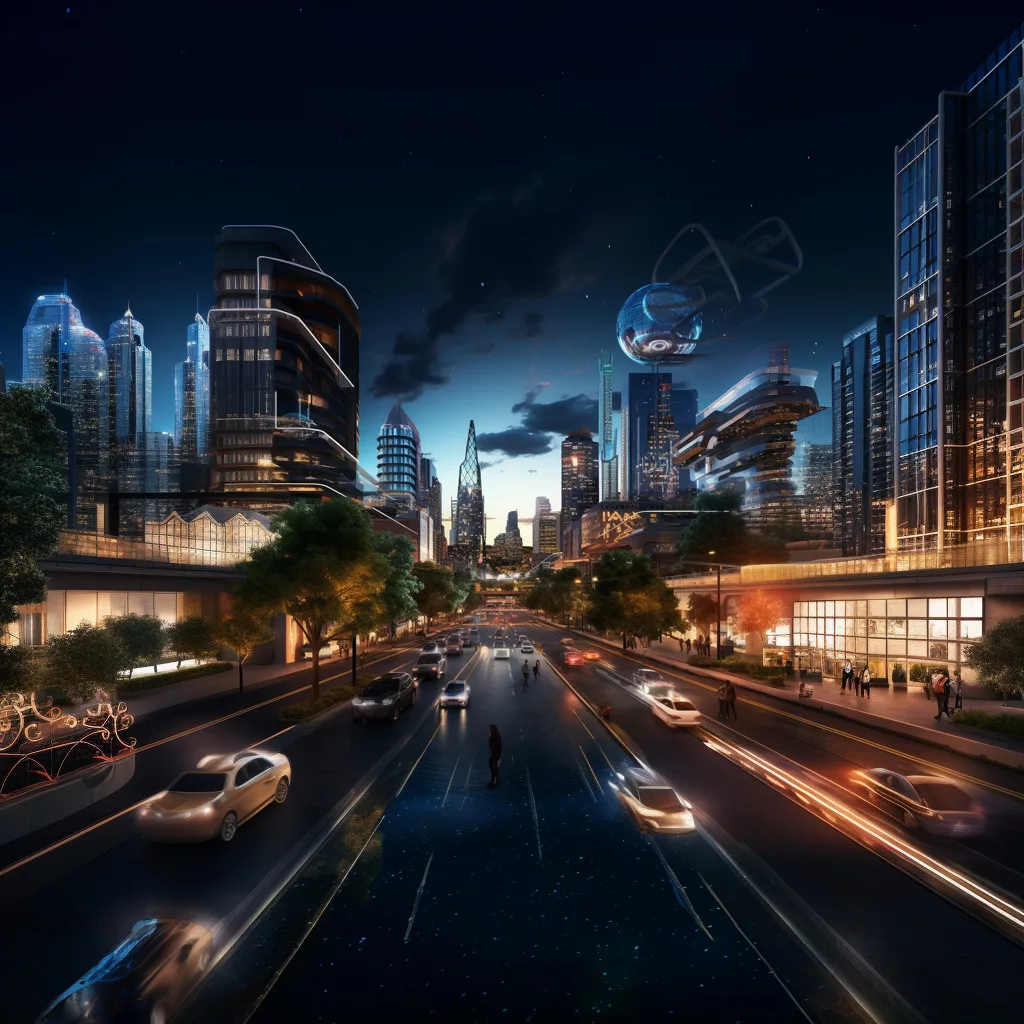
The concept of a metaverse has been circulating in the tech world for some time now, often painted as the next frontier of digital interaction. But have you ever considered its implications for urban development and smart cities?
The fusion of the metaverse with smart city initiatives is poised to revolutionize how we live, work, and interact in urban environments. 🏙️💡
According to a recent article by Dr. Rolf Werner on Telecoms.com, over the past two decades, there’s been a significant shift in global living patterns. Today, around 55% of the world’s population resides in urban areas, a number projected to rise to 70% by 2050. This rapid urbanization presents challenges: increased waste, traffic, air pollution, and strain on public services. Enter the Smart City Metaverse – a solution that leverages technology to address these urban challenges head-on. 🌍📈
In a smart city, networks connect everyone and everything, bridging the digital divide and facilitating the deployment of digital services like next-gen healthcare and networked schools. The metaverse, on the other hand, offers a digital realm where physical and virtual realities merge. Imagine a city where digital twins can be developed to test systems and protocols without affecting real-world services. Or a city where urban planning is done in a virtual environment before any real-world implementation, ensuring efficiency and sustainability. 🏢🔄🌐
Industry stats further highlight the potential. According to a report by Citi GPS, the metaverse economy could be worth a staggering $8 trillion USD by 2030. Moreover, as per Statista, the global smart cities market size is expected to reach $463.9 billion by 2027, growing at a CAGR of 24.7% from 2020 to 2027. These numbers underscore the immense potential when the metaverse and smart cities converge. 📊💹
For stakeholders across various industries, this fusion offers unparalleled opportunities:
Real Estate & Infrastructure: Virtual tours, property simulations, and predictive maintenance can redefine urban living and infrastructure development. 🏠🌉
Healthcare: Virtual hospitals, remote consultations, and health data analytics can transform patient care and health outcomes. 🏥💉
Education: Virtual campuses, immersive learning experiences, and global classrooms can reshape the educational landscape. 🎓📚
Transportation: Optimized traffic management, autonomous vehicles, and predictive maintenance can streamline urban mobility. 🚗🚄
The challenge now lies in ensuring that the networks supporting this convergence are robust, high-capacity, and offer zero-latency. As we stand on the cusp of this new era, it’s crucial for industry leaders, policymakers, and tech innovators to collaborate, ensuring that the Smart City Metaverse becomes a reality that benefits all. 🤝🌟